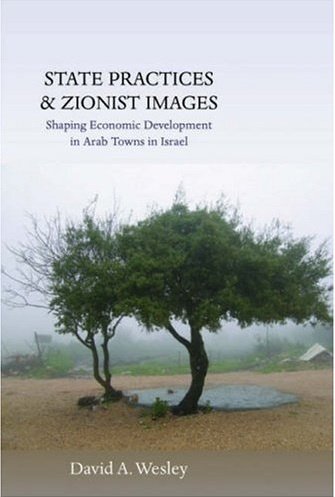State Practices and Zionist Images
1.223,02 TL
Kategori
Yayınevi
Barkod
9780857459060
Yazar
Wesley, David A.
Yayın Dili
İngilizce
Yayın Yılı
2013
Sayfa Sayısı
276
Kapak Tipi
Karton Kapak
Piyasa Fiyatı
23,95 GBP
Although the Israeli state subscribes to the principles of administrative fairness and equality for Jews and Arabs before the law, the reality looks very different. Focusing on Arab land loss inside Israel proper and the struggle over development resources, this study explores the interaction between Arab local authorities, their Jewish neighbors, and the agencies of the national government in regard to developing local and regional industrial areas. The author avoids reduction to simple models of binary domination, revealing instead a complex, multi-dimensional field of relations and ever-shifting lines of political maneuver and confrontation. He examines the prevailing concept of ethnic traditionalism and argues that the image of Arab traditionalism erects imaginary boundaries around the Arab localities, making government incursion disappear from view, while underpinning and rationalizing the exclusion of the Arab towns from development planning. Moreover, he shows how images of environmental protection mesh with and support such exclusion. The study includes a chronology of events, tables, maps, and photographs.
Review: "This is a book by an Israeli anthropologist of major importance. Wesley shows how these [settlement] policies were implemented in such a way that the Jewish population benefited and the Arabs did not.[The author], appalled by the systematic discriminatory results of state practices, takes a moral stand, but allows the reader to draw his own conclusions." * Shofar "[An] outstanding study of the structures and processes of development planning in the Galilee region of Israel - There are various reasons why this is, by some way, the most important book to date from Israeli anthropology. An ethnographic case study is presented that gets to the heart of the state and its government. But it does so in a way that frames the account as process rather than closed structure. A final thought, therefore, is that Wesley has effectively invited Israeli anthropologists to join the new historians in taking part in a project that invites the state to provide the space and conditions for both Jewish and Palestinian Israelis to make a congenial home - as fellow and equal citizens." * JRAI "The book is an important contribution to current scholarship on the Arab economy inside Israel." * Journal of Palestine Studies
Bu ürüne ilk yorumu siz yapın!


